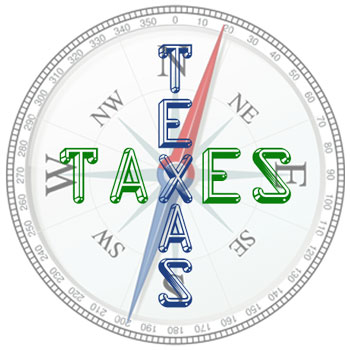 Welcome to the state of Texas!
Welcome to the state of Texas!
If you moved to Texas from another state or just contemplating your move to Texas, you will find that taxation in Texas is quite different from other states. Texas has lower tax burden than most of the states, but there are still a number of taxes you have to pay. Here are the highlights of the Texas state taxes:
#1: There is NO income tax in the state of Texas. That's right, you owe ZERO and you don't even have to file a State Income Tax Return.
#2: There is NO state property (or real estate) tax in the state of Texas. Instead, property tax in Texas is a locally assessed and locally administered tax.
#3: The Texas state sales and use tax rate is 6.25 percent, but local taxing jurisdictions (cities, counties, special-purpose districts and transit authorities) also may impose sales and use tax up to 2 percent for a total maximum combined rate of 8.25 percent.
If your Texas house is your principal residence you may apply for homestead exemptions. Homestead exemptions remove part of your home's value from taxation thus lowering your taxes.
Besides the General Residence Homestead Exemption, you may qualify for additional exemptions available for to following categories:
Below is a list of resources that may help you navigating the labyrinth of the laws and regulations pertaining to the property taxes in the state of Texas.